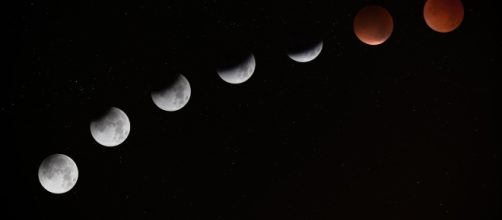If you didn’t catch the Solar Eclipse this week, you can catch it again in seven years on April 8, 2024, CBS News reports.
The next total solar eclipse will be visible in the U.S., however, the next coast-to-coast event will not occur until 2045. So, go ahead and store those plastic shades in the back of a drawer for the upcoming events.
In 2024, the shadow of the moon will eclipse at the southernmost Texas border and cross over Dallas, then Cleveland, Ohio, over Buffalo, New York and into Canada. It will again pass through Carbondale, Illinois, where it lingered the longest during this year’s eclipse.
How everyone observed the event
People all over the world came out to view the eclipse from Paris to the Grand Tetons. There is no shortage of videos and photos surrounding it, within the places where gazers were able to view the grand spectacle. The last time the U.S. viewed a total solar eclipse was in 1991, according to NASA.
According to CBS, 4.4 million people tuned into NASA’s live TV coverage on Monday. The event was the largest Livestream broadcast in the history of the agency. NASA reports that leading up to the event, people Googled “Eclipse 2017” more than 35 million times.
Missed the #SolarEclipse2017? Check out some of the fantastic photos shared from across the country https://t.co/g5SJCpdOXs #NatGeoEclipse
— National Geographic (@NatGeo) August 21, 2017
How animals reacted
At the Memphis Zoo in Tennessee, some of the animals reacted to the event.
Amanda Schweighart, the elephant manager at the zoo, told WMC Action News 5 that they noticed some changes in the youngest elephant in the herd, Asali. “She went into an 'alert' stance, that lasted several seconds,” she said. “Once she reunited herself with her two herd mates, her behavior returned to normal.”
The Memphis Zoo also reported that the penguins became vocal during the event, and visitors noted that the crocodiles swam wildly. They also tweeted that their ostriches, bongos, and Grant's gazelles could not figure out what was going on, and some even “bedded down like they do at night.”
One herd that shrugged at the whole incident were the hippos, who the zoo tweeted were not sure when it was, and resumed their normal activities for that time of day.
The history of the eclipse
People have viewed the eclipse as far back as the ancient Babylonians, based on what we know from recorded history. According to NASA, ancient Babylonian clay tablets were inscribed with information about viewing eclipses between 518 and 465 B.C.
In Ancient China, they believed that solar eclipses were the result of an ethereal dragon consuming the sun. They also believed that lunar eclipses were prophecies that predicted the future of the Emperor.
Ancient Greek historians kept records of the otherworldly wonder. Herodotus documented that Thales was able to predict the year of the upcoming solar eclipse in 610 or 585 B.C., although evidence shows that their method only worked one time, according to NASA.
For as long as humans have kept records, we have witnessed sightings of the great solar eclipse. They may have been around since Earth began orbiting the sun. As long as we are here, we will probably always enjoy the celestial wonder.


